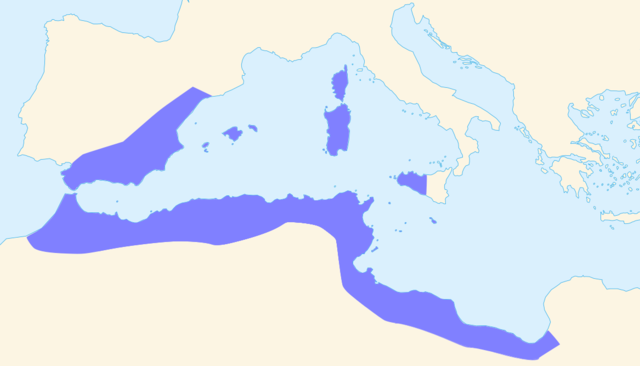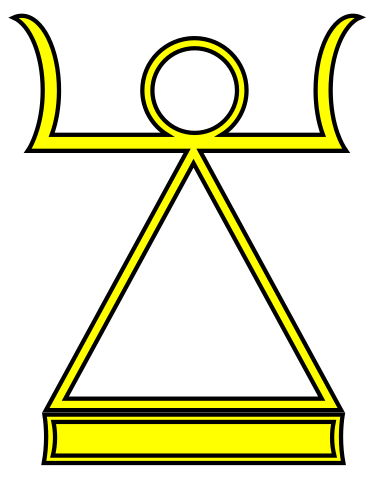| Carthage 𐤒𐤓𐤕𐤟𐤇𐤃𐤔𐤕 Qart-ḥadašt | |
|---|---|
| 814 BCE – 146 BCE | |
 Carthage in 323 BCE | |
| Capital | Carthage |
| Dominant mode of production | Slavery |
| Government | Monarchy until 480 BCE Republic (480-146 BCE) |
Carthage was an ancient semitic civilization based in North Africa, around a city state in modern day Tunisia, which grew to become the Carthaginian Empire, the dominant power in the Mediterranean Sea. Founded by Phoenician settlers, Carthage clashed with several civilizations including the Greeks as it established its empire before being defeated by the Romans in the Punic Wars, ending several centuries of Carthaginian dominance.
History
Early history
Phoenician settlers founded the city of Carthage towards the end of the 9th century BCE, with its strategic location allowing it to quickly become a major centre of trade. Carthage's growth as an empire took shape in the Sicilian Wars from 580-265 BCE in which Carthage, after defeats and victories on both sides, defeated the Greeks and gained control over most of Sicily excluding Syracuse. In this time Carthage also conquered sections of modern day Morocco, Algeria, Libya, Spain and Sardinia, cementing itself as the regional power.[1]
Punic Wars
See main article: Punic Wars
The First Punic War, beginning in 264 BCE, was fought between the Roman Republic and Carthage for control of Sicily, and after achieving victory on land and sea, Carthage was forced to relinquish Sicily and pay Rome a large indemnity in 241 BCE. This loss triggered chaos in the Carthaginian Empire, with several uprising taking place which Carthage put down with difficulty. However, in the next few decades Carthage managed to re-establish its military and economic power as well as expanding its control of Spain under the leadership of Hamilcar Barca followed by Hasdrubal and Hannibal.[1]
The Second Punic War began in 218 BCE when Carthage attacked the city of Saguntum, a Roman ally in Iberia. The war would determine which power would become the dominant Mediterranean power and although Hannibal threatened the existence of Rome by crossing the Alps with an army into mainland Italy, he would eventually be defeated and Carthage forced to make peace in 201 BCE. Carthage would never truly challenge Rome again and would eventually be fully conquered by Rome in the Third Punic War, lasting 149–146 BCE, and become the Roman province of Africa.[1]
References
- ↑ 1.0 1.1 1.2 I. SH. Shifman (1979). The Great Soviet Encyclopedia: 'Carthage'.

